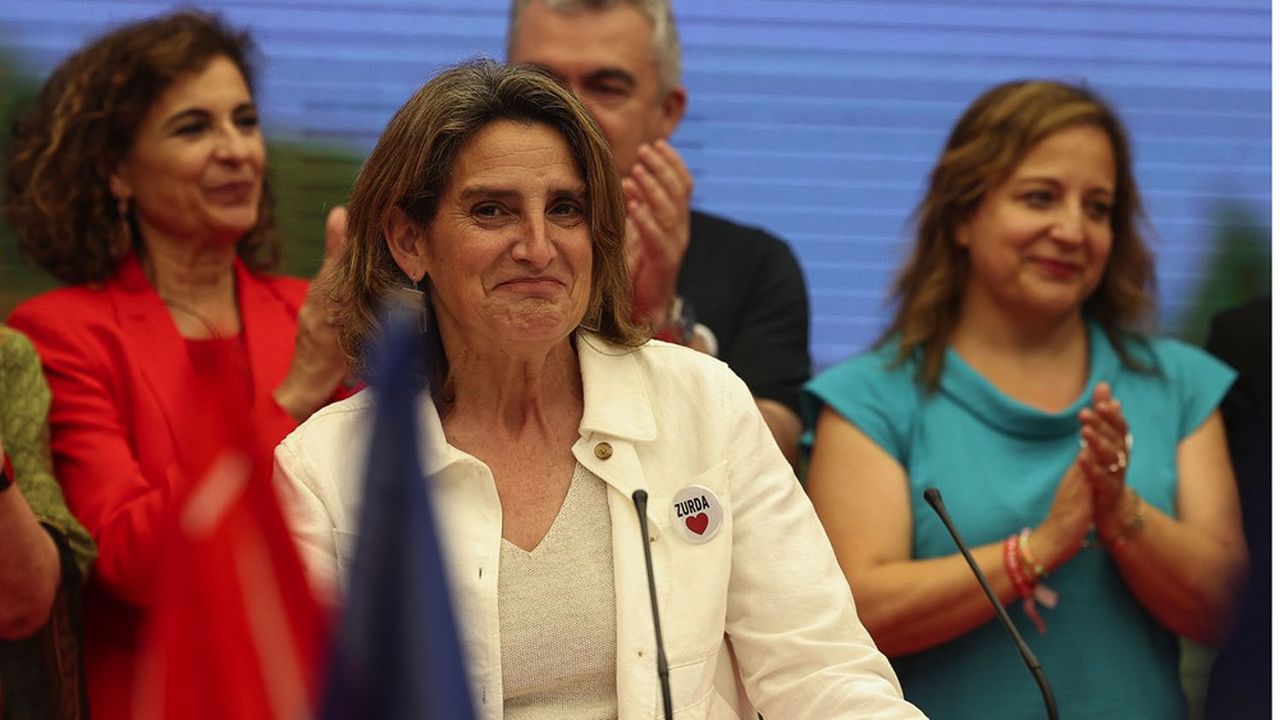
The Spanish Teresa Ribera is emerging as the future European Commissioner for Climate and Environment, in charge of the Union’s green agenda. Her name has been among the favorites for weeks and, in Madrid, she is already being considered for a vice-presidency in the future Commission chaired by Ursula von der Leyen.
At 55, the current Minister for Ecological Transition in Pedro Sanchez’s socialist government is therefore ready to take charge of the major issues of the Green Deal, energy and climate, which have become increasingly important in European debates. Her appointment would hardly be a surprise. Labelled socialist, her candidacy not only has the support of the Greens, but also the recognition of those who saw her battle on issues in Brussels and lead the reform of the European electricity market, completed in extremis last December at the end of the Spanish presidency.
Accelerating the Green Deal
Throughout the summer, she has maintained approach conversations with Ursula von der Leyen, to define her possible future functions. “If Teresa goes to Brussels, it will be to accelerate the implementation of the Green Deal at a time when some preferred to take it easy,” people around her say.
She does not hide the fact that her preferences go to renewables, but she knows how to listen to French demands on the importance of nuclear power for a decarbonized economy. “She is competent and experienced”, “demanding with herself and with her teams”, describe those who have worked alongside her in recent years.
Having arrived in the Spanish government with a discreet technical profile in 2018, this senior civil servant from Madrid, a lawyer by training, has revealed herself in recent years as a skilled politician. Thanks to the Ukrainian crisis, she has emerged as one of the key players in Pedro Sanchez’s team, taking charge of key issues such as the reform of the electricity market, the green transition, climate issues and water management.
She can rely on a very good knowledge of the issues, which she has worked on since her beginnings in politics as Secretary of State for Climate Change (2008-2011) in the Zapatero government. She has developed all her activity around environmental issues and sustainable development, within the World Economic Forum and the United Nations, then as director of the Institute for Sustainable Development and International Relations (IDDRI), in Paris, from 2014 to 2018, before returning to Madrid as Minister of Ecological Transition.
Reduction of electricity bill
In Spain, she has earned her stripes in public opinion by defending the reduction of household and industrial electricity bills, financed with a surcharge on the exceptional profits of the large companies in the sector. Or by curbing illegal water extraction for strawberry crops that is drying up the Doñana Natural Park in Andalusia, and by negotiating a rescue plan for the large salt lagoon of the Mar Menor, asphyxiated by pollution from nitrates discharged by farmers.
She defends her positions tooth and nail, which has caused her friction with the big executives of the electricity sector, such as Ignacio Sanchez Galan, the all-powerful boss of Iberdrola. She takes advantage of the rare breaks she allows herself to go hiking in the mountains of the Sierra de Madrid, with her husband and two daughters.
Population adhesion
While she has lost none of her vehemence, she has also learned to negotiate, to hang on in order to convince, and to compromise too. Aware, she says, that the green transition can only be achieved with the support of the populations. “It is a much deeper transformation than replacing one power plant with another,” she explained to Les Echos last year. “We must work towards an inclusive transition and be careful about the messages we send to citizens. We must give the players in the sector certainty about the return on their investments, but we must also listen to local populations and reassure consumers so that they feel they are benefiting and support the changes.”




